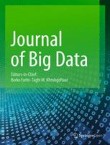Journal of Big Data welcomes submissions to the thematic series "Advanced bio-inspired deep learning algorithms for multi-modal perceptual big data analysis in car-driver assistance systems"
The latest and next generation cars collect a wide variety of data coming from different systems that need to be processed and merged in order to provide adequate car driving assistance. The data which are most relevant in reducing the driver's risk level are those of the perceptual type that are reconstructed from the driver's physiological signals (photoplethysmography) sampled by sensors placed in the car's steering, and through visual features sampled from special front-cameras on the base of the steering system. Then, through additional external vision sensors, MEMS and accelerometers placed inside the car, it is possible to reconstruct the driving scene, driver stress levels, driving safety, driving dynamics etc. These approaches make use of sophisticated bio-inspired algorithms that use modern deep learning approaches.
Potential topics include but are not limited to:
- Car-driver vision and physiological big data processing systems for automotive applications
- Scene understanding for autonomous vehicles
- Software Deep Learning and intelligent sensor processing embedded architectures for autonomous vehicles
- Vision, LiDAR , RADAR, near-infrared-thermal, physiological data for augmented driving safety
- Car driver physiological assessment for personalized driving assistance
- Multi-modal bio-sensors for car-driver assistance systems
- Intelligent multi-modal bio-sensing data analysis and modelling for driving risk assessment
- Adversarial attack stabilization pipeline for deep learning based driving assistance solutions
- Deep learning with domain adaptation for robust car driving scene understanding/reconstruction
- Car-driver saliency-based scene reconstruction and object detection and tracking
- Deep Learning perceptual Video saliency for car-driving profiling and safety assessment
Submission Instructions
Before submitting your manuscript, please ensure you have carefully read the submission guidelines for Journal of Big Data. The complete manuscript should be submitted through the Journal of Big Data submission system. To ensure that you submit to the correct thematic series please select the appropriate thematic series in the drop-down menu upon submission. In addition, indicate within your cover letter that you wish your manuscript to be considered as part of the thematic series on "Advanced bio-inspired deep learning algorithms for multi-modal perceptual big data analysis in car-driver assistance systems". All submissions will undergo rigorous peer review and accepted articles will be published within the journal as a collection.
Deadline for submissions: 31 December 2022
Guest Editors
Dr. Eng. Francesco Rundo, Ph.D. STMicroelectronics, ADG Central R&D, Italy
Lead Guest Editor
Prof. Sabrina Conoci, Ph.D, University of Messina, Italy
Guest editor
Prof. Sebastiano Battiato, Ph.D. IPLAB-Group - University of Catania, Italy
Guest editor
Prof. Arcangelo Merla, Ph.D., University of Chieti-Pescara "G. d'Annunzio", Italy
Guest editor
Submissions will also benefit from the usual advantages of open access publication:
- Rapid publication: Online submission, electronic peer review and production make the process of publishing your article simple and efficient
- High visibility and international readership in your field: Open access publication ensures high visibility and maximum exposure for your work - anyone with online access can read your article
- No space constraints: Publishing online means unlimited space for figures, extensive data and video footage
- Authors retain copyright, licensing the article under a Creative Commons license: articles can be freely redistributed and reused as long as the article is correctly attributed
